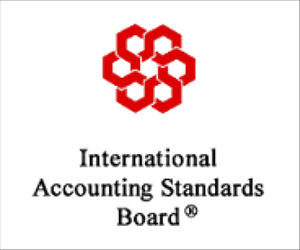
SFAF's Accounting and Financial Analysis Committee met with three members of the IASB. Improvements to the income statement, segment reporting, the cash flow statement and goodwill remain at the heart of analysts' expectations.
On 9 January 2024, the Accounting and Financial Analysis Committee organised a meeting at the SFAF offices with three members of the IASB (International Accounting Standards Board): Andreas Barckow, Chairman, Linda Mezon-Hutter, Vice-Chair, and Bertrand Perrin, Board member and former Director of Accounting Standards at Vivendi.
The meeting was an opportunity for the Committee to reiterate its main wishes (and at the same time to underline its dissatisfactions), which had been the subject of a comment letter as part of the IASB's last consultation on its work programme.
Firstly, with regard to the project to improve the income statement, which is of prime importance to analysts, the committee particularly emphasised the need to have a presentation of expenses by nature, whereas the presentation of expenses by function presents major disadvantages for users (lack of comparability, reduced predictability, no link with the cash flow statement). Indeed, contrary to the original proposal, the current draft no longer requires a full presentation of expenses by nature, but only of personnel costs and depreciation, even though this central point has been the subject of constant requests from analysts over the last 20 years, both in France and in the rest of Europe.
Secondly, the committee also pointed out that the standard on segment reporting (IFRS 8) did not allow analysts to do their job properly on a fundamental subject, that of understanding the issuer's businesses and making comparisons with other companies. On the contrary, by applying the "management approach", the current standard allows frequent redefinitions of segments and does not require segment income statements to be presented in a way that is compatible with IFRS.
These discussions also provided an opportunity to reiterate the areas for improvement expected by analysts with regard to the cash flow statement (IAS 7): better disaggregation, better reconciliation with the other financial statements (income statement, balance sheet), identification of flows to minority shareholders, etc.
Lastly, the Committee briefly reiterated its frustration at the absence of goodwill amortisation, despite the major shortcomings of impairment testing (too little, too late).
The positions of the Accounting and Financial Analysis Committee on these four main points can be found on the SFAF website:
- Presentation of the income statement
- Segment reporting
- Cash flow statements
- Business combinations-Goodwill

